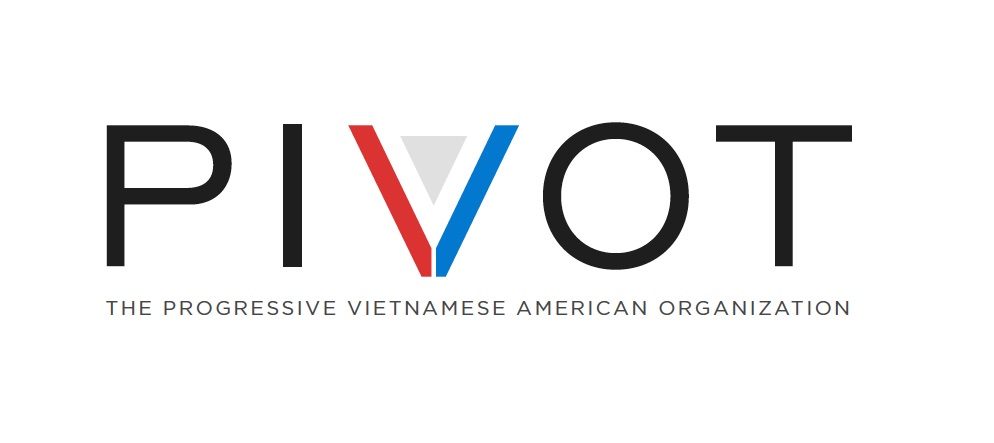TÔI GIÚP MẸ ĐI BẦU LẦN ĐẦU TIÊN Ở MỸ
/Ngày 2 tháng 9 năm 2020
Phi Nguyen, thành viên của PIVOT
Gần 40 năm sau khi đặt chân đến nước Mỹ, năm 2016 là lần đầu mẹ đi bầu. Trong thời gian trước ngày bầu cử, tôi giúp mẹ ghi danh cử tri và xin một lá phiếu khiếm diện. Mẹ đánh mất lá phiếu đó, nên tôi giúp bà đi bầu trực tiếp tại trạm bầu phiếu ngày bầu cử.
Tại phòng bầu phiếu, người ta nói là mẹ cần đến văn phòng của Hội đồng Bầu cử Quận hạt để ký giấy thỏa thuận hủy lá phiếu khiếm diện trước khi quay trở lại để bầu. Là một cử tri lần đầu với vốn liếng Anh ngữ giới hạn, mẹ định bỏ luôn chuyện bầu bán để khỏi phải theo những thủ tục rườm rà này.
Tôi chưa chịu đầu hàng. Vào thời điểm đó, tôi không những vẫn còn là một luật sư chuyên về những sai trái trong ngành y mà còn đang bận thu nhận lời khai của một nhân chứng chuyên môn. Nhưng tôi biết tôi có thể giúp mẹ. Trong giờ nghỉ, tôi gọi Raymond Partolan, người bạn lúc đó là phối hợp viên của tổ chức Advancing Justice-Atlanta. Anh ta thu xếp để một người thông dịch tiếng Việt hỗ trợ mẹ tôi trao đổi với nhân viên phòng phiếu. Anh cũng gọi văn phòng Hội đồng Bầu cử Quận hạt để yêu cầu mẹ tôi được quyền hủy phiếu khiếm diện tại chỗ thay vì lái xe sang văn phòng khác.
Tôi tiếp tục gửi tin nhắn đến mẹ và Raymond trong những khoảnh khắc rảnh rỗi giữa thủ tục thu nhận lời khai. Mẹ chịu quay trở lại phòng bầu phiếu sau khi nghe tôi nài nỉ. Chiến thắng! Nhưng vừa đậu xe xong, mẹ gửi tin nhắn cho tôi đổi ý kiến, không muốn vào phòng phiếu nữa. Mẹ sợ lại bị người ta từ chối. Cuối cùng, mẹ chịu đi vào và bỏ lá phiếu đầu tiên từ ngày sang Mỹ.
Tôi chia sẻ câu chuyện này vì người ta thường hỏi tôi: người Mỹ gốc Châu Á gặp trở ngại gì trong việc bầu cử? Thật vậy, nhiều người gốc Châu Á gặp trở ngại. Trở ngại ngôn ngữ đã dựng nên rào cản mà mọi cử tri – nhất là cử tri da màu – thường xuyên gặp phải.
Tôi biết là Advancing Justice-Atlanta là một trong vài tổ chức tại bang Georgia có khả năng trợ giúp trên phương diện ngôn ngữ mà mẹ tôi cần vào tháng 11 năm 2016. Và tôi cảm thấy mang ơn là bốn năm sau, tôi có cơ hội đóng vai trò có ảnh hưởng hơn để giúp những người như mẹ tôi được đi bầu.
Almost 40 years after she came to America, my mom voted for the first time in 2016. Leading up to the election, I helped her register to vote and request an absentee ballot. She lost her absentee ballot so tried to vote in person on Election Day instead.
At the polls, my mom was told she would need to first go to the county board of elections to sign an affidavit canceling her absentee ballot and then return to her precinct to vote. As a first-time voter and person with limited English proficiency, my mom was ready to sit the election out rather than try to navigate this confusing process.
I wasn’t as ready to give up. At the time, I was still working as a medical malpractice lawyer and was in fact in the middle of deposing an expert witness. But I knew who could help. On a break, I called my friend Raymond Partolan, who was at the time Advancing Justice-Atlanta’s civic engagement coordinator. He lined up a Vietnamese interpreter who agreed to stay on the phone with my mom and help her communicate with poll workers. He also called the county board of elections to request that my mom be allowed to cancel the absentee ballot at her precinct instead of requiring her to drive to the county board of election.
I continued to text my mom and Raymond on breaks throughout my deposition. After a lot of coaxing from me, my mom agreed to back to the polls. Victory! But then after she parked, she texted to say never mind, she didn’t want to go in. She was scared to get turned away again. In the end, she went in and cast her very first vote.
I share this story because people often ask me about what barriers AAPI communities face at the polls. For many AAPI voters, there is an added barrier—a language barrier—superimposed on the various other roadblocks that all voters—but especially voters of color—may face.
I know that Advancing Justice-Atlanta is one of the only organizations in Georgia that could have provided the in-language help that my mom needed on November 2016. And I'm grateful that four years later, I get to play a bigger part in ensuring that all voters like my mom can vote.
